
English-to-Spanish PPC Strategies
English-to-Spanish PPC Strategies
Our PPC specialist was handed 600 keywords related to an English-to-Spanish PPC campaign. Guess how many out of the 600 got validated?
Just seven percent!
And, out of that 7 percent, half were brand-related terms.
Brands that rely on basic English-to-Spanish translation methods are bound for unsuccessful PPC campaigns. Furthermore, campaign managers need to consider:
Google shows ads based on a browser’s setting. Therefore, consider targeting consumers searching in English AND Spanish.
Some English-to-Spanish keywords are needless due to very low search volumes in other languages or countries. Moreover, some English words or phrases don’t exist in Spanish, so there’s a need to get more broad based.
Translated words can sound different and look different too. Capitalization, accents, and tildes matter when targeting Hispanic markets. Moreover, a keyword’s character length may grow considerably after an English-to-Spanish translation.
Don’t start your Hispanic marketing campaign without considering the following English-to-Spanish PPC strategies.
The Hispanic Amazon
Throughout 2019, MercadoLibre, generated over $2 billion in revenue, almost 60% more than a year earlier. MercadoLibre is present in 18 Latin American countries.
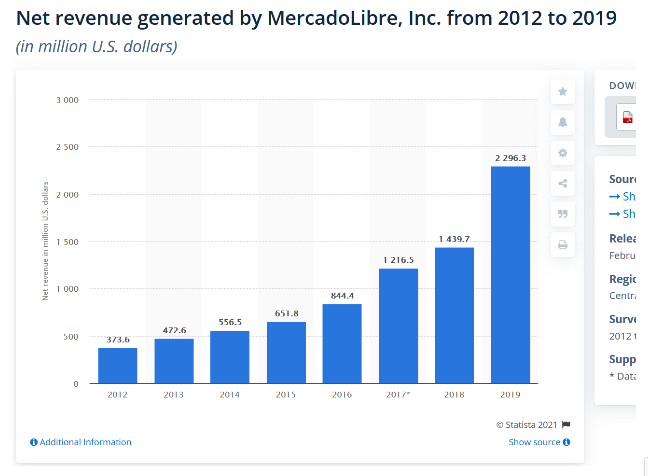
The Hispanic version of Amazon capitalizes on limited competition throughout Latin America. Brands that start English-to-Spanish PPC campaigns now can follow the up-and-to-the-right sales figures started by MercadoLibre.
Further Reading:
– Building Brand Authority in Latin America
Spanish Language Targeting
Google Adwords considers the language preference of users. So, a person with their Google language preference set to English will NOT see ads in Spanish. This is a HUGE mistake for brands leveraging paid ads in foreign countries.
Don’t assume consumers are using Google in their native language. This is especially true when marketing in Latin America. LATAM consumers may seek English ads and search results, especially if both languages are spoken in the home and the user has experience using Google in English.
Moreover, a Spanish speaker may seek a product or service using English keywords since there is no direct translation in Spanish.
English Omissions and Modifications
What if I told you many English-based campaign words are literally lost in translation in preparation for a Spanish PPC campaign?
In a recent English-to-Spanish PPC campaign, a software client handed-over 600 keywords related to an American campaign. Only 7% of the English keywords had a Spanish equivalent!
American-based brands make missteps in planning Hispanic PPC campaigns from the onset. Some take existing English ad groups, keywords, and then translate them to Spanish.
American brands need to contact specialists for Spanish PPC campaigns, those with expert experience in speaking the language and understanding individual Hispanic subcultures.
Further Reading:
– Quick Tips on How to Market to Hispanic Consumers
National and Regional Keyword Variations
Let’s assume we want to sell piggy banks to Spanish buyers. We quickly use the English-to-Spanish translation tool that is handiest – Google Translate.
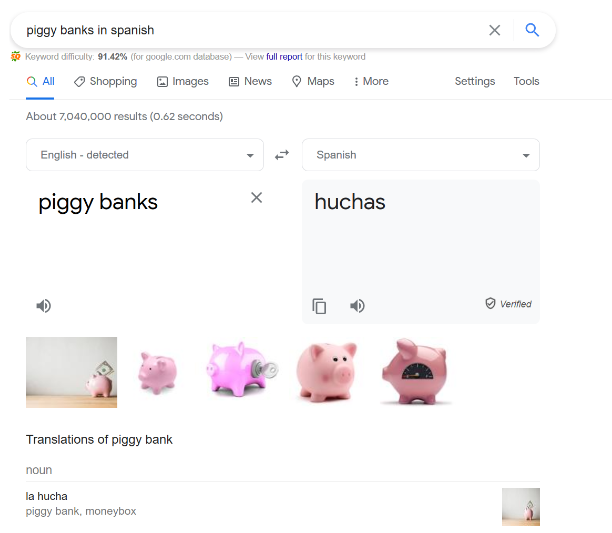
However, is “huchas” the BEST keyword to use in each Hispanic country? Is it as relevant/lucrative a keyword to use in Mexico as it is in Spain?
Let’s use Google Trends to gain a sense of the popularity of the term and its prevalence in local language. In Mexico, the word “hucha” is not incredibly popular.
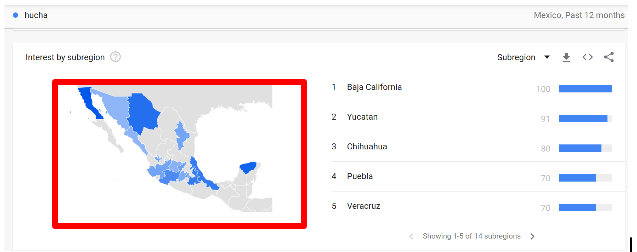
It’s used in the Baja California and Yucatan regions the most. What about Spain?
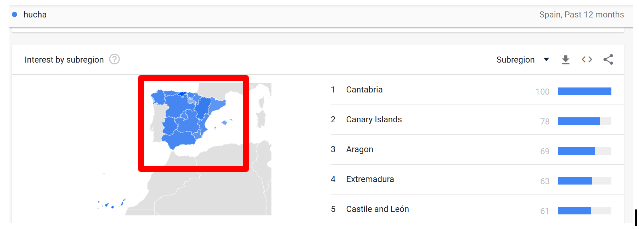
Using the word, “hucha” to sell piggy banks is much more effective as compared to Mexico. So, we can see how basic English-to-Spanish translation can create missed opportunities for some.
Unreliable English-to-Spanish PPC Synonyms
In some cases, basic English-to-Spanish translation tools lead your Spanish PPC campaign awry. Using the word, “hucha” from above, let’s examine a basic thesaurus, for it’s likely some Hispanic PPC campaigns leverage synonyms of keywords.
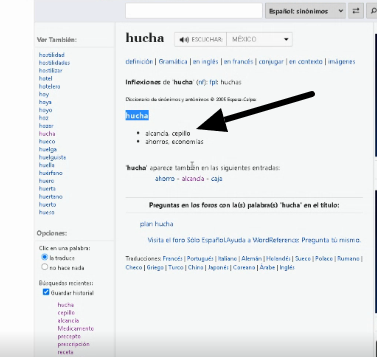
“Cepillo” is suggested, but that translates to “brush.”
“Ahorros” is suggested, but that translates to “savings.”
“Economias” is suggested, but that translates to “economy.”
This is an ineffective way to go about keyword research for Hispanic PPC and campaigns.
In summation, don’t rely on basic English-to-Spanish translation tools. You need more insight regarding the right terms for the right geographic location. Furthermore, many English-t0-Spanish translations don’t exist for particular keywords (especially those related to software products and services).
Further Reading:
– How to Create a Style Guide for Translations
Different Buyer Intent
Some English-to-Spanish translations don’t have exact translations. In some cases, a Spanish translation may have a broader intent, creating a disparity in regards to keywords as well as consumer intent.
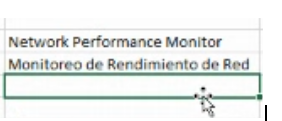
A “network performance monitor” is commonly searched in English but that keyword/concept translates poorly into Spanish. Furthermore, one who searches for “network performance monitor” may have a different buyer intent than one who searches “monitoreo de rendimiento de red.”
It’s interesting to note, when using an English browser setting but searching for “monitoreo de rendimiento de red,” the suggested results are more brand-related.
Network Performance Monitor
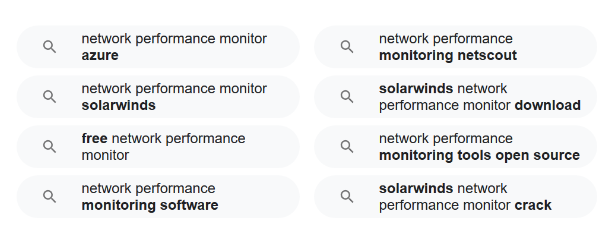
Monitoreo de Rendimiento de Red
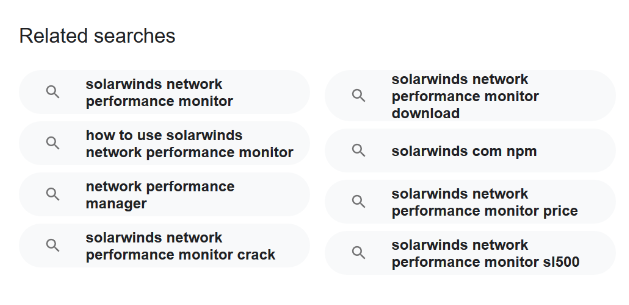
The Spanish translation leads to a number of solarwinds-brand searches.
Worthy Spanish PPC Campaign Words
English-to-Spanish PPC campaigns necessitate a bit more of experimentation. For example, we viewed the English versus Spanish version of network performance monitor above in the search results.
Using Google’s Keyword Planner for Spanish PPC, one can view estimated volume and difficulty for:
- A person using Google in English searching for the English keyword variation (network performance monitor)
- A person using Google in English searching for the Spanish keyword variation (monitoreo de rendimiento de red)
- A person using Google in Spanish searching for the English keyword variation
- A person using Google in Spanish searching for the Spanish keyword variation
For example, is it useful to target consumers living in America but using Spanish keyword variations?
In this case, not very useful:
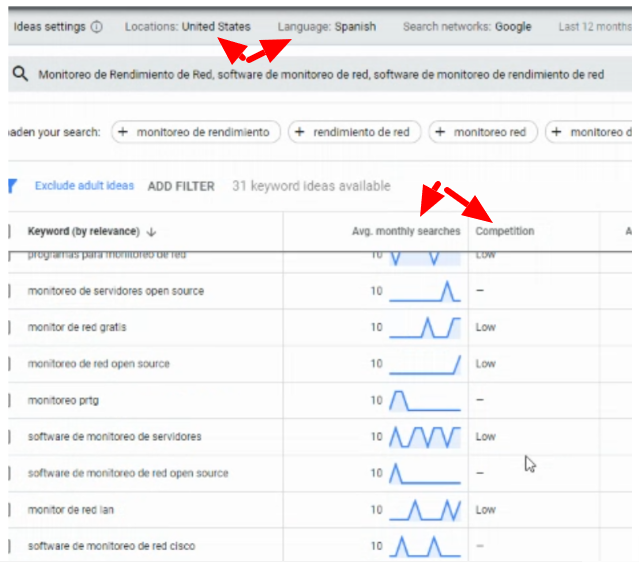
Questioned Domain Structure
Is it worth it to buy a ccTLD vs offering browsers a subfolder or subdomain? Without getting into the subfolder vs subdomain debate, alive and well on #SEOTwitter,
Altura did a study on whether ccTLDs mattered in regards to whether one gives a website a “local” advantage.
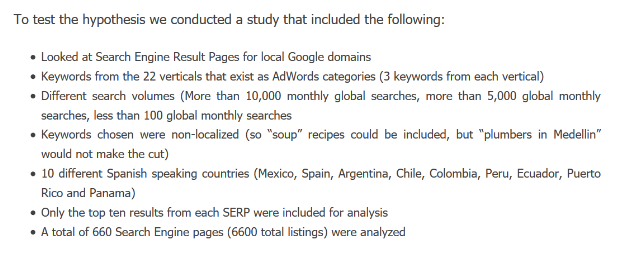
And here’s what we found as to whether a ccTLD was an advantage:
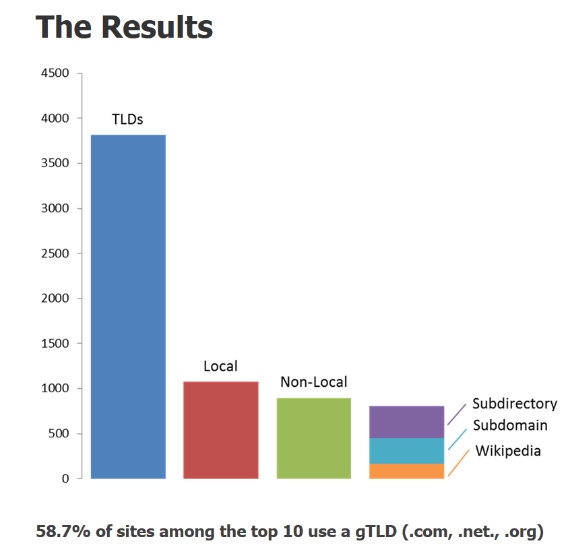
What matters most is not a “localized” domain but “localized content.” Even if the SERPs began preferring ccTLDs to gTLDs, the impact of the impending web content is what is going to drive sales and brand allegiance.
Further Reading:
– ccTLDs in Latin American SERs
Spanish-to-English Branding
Major League baseball made minor alterations to player jerseys that hit big with Hispanic fans.
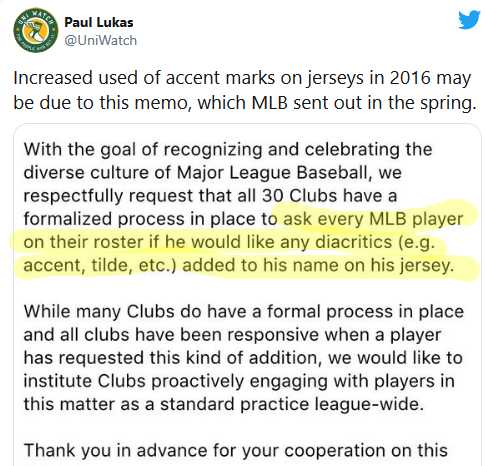
Be sure that your Spanish PPC keyword resembles an existing Spanish keyword. Also, ensure keywords look Spanish as well by paying attention to Spanish-related capitalization, accents, tildes, etc.
Further Reading:
– Top Hispanic Marketing Campaigns
Furthermore, consider the actual length of your English-to-Spanish keywords. Take a look at the difference in length as featured here:
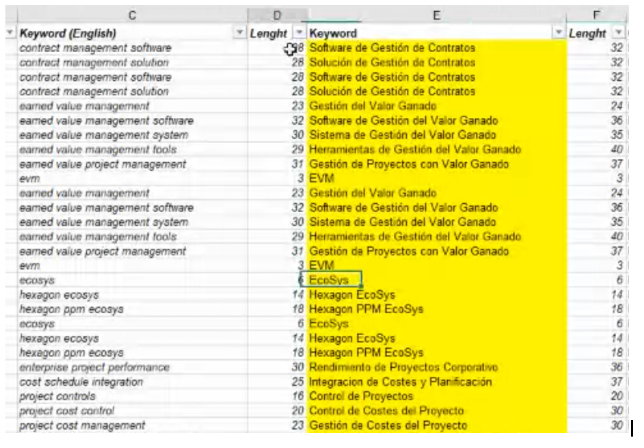
Let’s take “project cost control” as an example. The keyword goes from 20 characters in length (in English) to 30 (in Spanish)!
It’s food for thought for many American brands who want to penetrate Hispanic markets in other countries as well as inside the United States. Spanish-speaking Hispanics are willing to try new products, especially in the Beauty, Home Care, and Healthcare verticals.
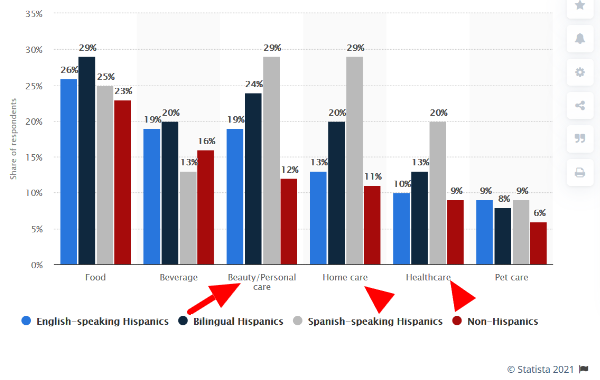
Therefore, it’s beneficial to understand what keywords should be in your Spanish PPC campaign as well as how verbiage should appear and resonate with Hispanic markets in the United States and throughout the world.
Altura partners with American and international brands and other PPC Companies to make a lasting impact on Hispanic consumers. We help our clients with Spanish PPC, content marketing, social media, Spanish SEO, and English-to-Spanish translation for websites, landing pages, social media posts, etc. Let’s start a conversation that will eventually get Hispanic markets talking!





